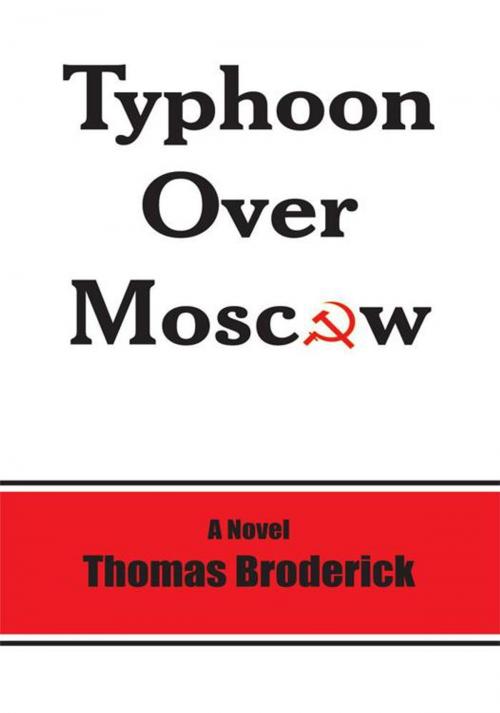| Author: | Thomas Broderick | ISBN: | 9781420801804 |
| Publisher: | AuthorHouse | Publication: | March 3, 2005 |
| Imprint: | AuthorHouse | Language: | English |
| Author: | Thomas Broderick |
| ISBN: | 9781420801804 |
| Publisher: | AuthorHouse |
| Publication: | March 3, 2005 |
| Imprint: | AuthorHouse |
| Language: | English |
During the predawn hours of June 22, 1941 over 3.5 million German troops and thousands of tanks, planes, and armored vehicles slammed into the Soviet Unions Western Frontier. Hitlers Operation Barbarossa had begun and stretched on a front spanning nearly 2,000 kilometers from north to south. The opening weeks of the Great Patriotic War as it is known in Russia, were an unmitigated disaster for the Red Army. Brave soldiers like Lieutenant Alexander Semenov and General Nikolai Petrenko struggled heroically to shore up their countrys defenses and halt Germanys three-pronged advance, the center of which was aimed right at the very heart and capital of their beloved motherland, Moscow. With the entire civilian population mobilized, thousands of men, women, and children, toiled without rest digging fortifications and deep anti-tank trenches out of the rich black soil of Mother Russia. Industrial workers from across the country labored to crate every piece of equipment, not already in German hands, and shipped them east to the Urals out of harms way. Thousands of vital war industries, large and small, sprung up from the frozen earth and within weeks were producing the vital tools needed to bring the fight to the Fascists invaders. As far as the German Army was concerned, the drive east into the depths of Russia was little different from any of her previous conquests. However, true professional soldiers the likes of Colonel Wilhelm Eichorn knew better. Russia was a vast country with an unforgiving climate. If the campaign to destroy the Soviet field army and capture Moscow was not completed before the onset of the next brutal Russian winter, disaster was certain. The annals of history were littered with the wreckage of armies that learned getting into Russia was easy, getting out was not. As fall neared and the German summer successes began to fade, Hitler mustered his forces for one final decisive push to seize Moscow and end the war. Operation Typhoon had begun.
During the predawn hours of June 22, 1941 over 3.5 million German troops and thousands of tanks, planes, and armored vehicles slammed into the Soviet Unions Western Frontier. Hitlers Operation Barbarossa had begun and stretched on a front spanning nearly 2,000 kilometers from north to south. The opening weeks of the Great Patriotic War as it is known in Russia, were an unmitigated disaster for the Red Army. Brave soldiers like Lieutenant Alexander Semenov and General Nikolai Petrenko struggled heroically to shore up their countrys defenses and halt Germanys three-pronged advance, the center of which was aimed right at the very heart and capital of their beloved motherland, Moscow. With the entire civilian population mobilized, thousands of men, women, and children, toiled without rest digging fortifications and deep anti-tank trenches out of the rich black soil of Mother Russia. Industrial workers from across the country labored to crate every piece of equipment, not already in German hands, and shipped them east to the Urals out of harms way. Thousands of vital war industries, large and small, sprung up from the frozen earth and within weeks were producing the vital tools needed to bring the fight to the Fascists invaders. As far as the German Army was concerned, the drive east into the depths of Russia was little different from any of her previous conquests. However, true professional soldiers the likes of Colonel Wilhelm Eichorn knew better. Russia was a vast country with an unforgiving climate. If the campaign to destroy the Soviet field army and capture Moscow was not completed before the onset of the next brutal Russian winter, disaster was certain. The annals of history were littered with the wreckage of armies that learned getting into Russia was easy, getting out was not. As fall neared and the German summer successes began to fade, Hitler mustered his forces for one final decisive push to seize Moscow and end the war. Operation Typhoon had begun.















